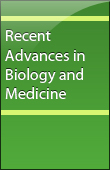


Severe burn injury is more challenging to sustain life than a preburn status. The situation changes drastically in terms of energy demands/ expenditure and the great degree of susceptibility to infections due to the loss of amino acids. Glutamine stimulates the immune system and prevents catabolism. The bacterial translocation from the gut can be decreased by glutamine supplementation, thereby suppressing the inflammatory response. In acute burn injury, plasma and muscle glutamine depletion is observed to contribute to muscle wasting, weight loss, and infection. Patients with 20%–50% TBSA burns presenting within 24 hours of injury to the emergency department or outpatient department were included in the study. The patients were divided into two groups randomly. In group 1 (Cases), all patients were given enteral glutamine supplementation at the dose of 0.5 mg/kg/day either orally or through a nasogastric tube started within 24 hours of injury. Group 2 (Control) had all the patients in whom enteral glutamine supplementation was not given. In both groups, blood analysis for total leucocyte count (TLC) and total serum proteins (TSP) was done upon admission. On Day 4, followed by analysis every fourth day, after that, till healing occurred or the patient was taken up for grafting. Blood and wound swab cultures were done on the third day of admission, then the first week, followed by weekly cultures for 4 weeks or till healing occurred or the patient was taken up for grafting. A total of 123 patients were studied. There was a decreasing trend in the mean values of the TLC and an increasing trend in TSP in both groups. The difference became statistically significant from Day 20 onwards. The pattern of wound cultures was found to be statistically significant in Week 3 and Week 4, whereas the difference in blood culture positivity among the groups was statistically significant in Week 3. We noted, in our study, that the glutamine supplementation to the early enteral nutrition increased the TSP levels and decreased the TLC, wound, and blood culture positivity rates in the study group. Glutamine supplementation can contribute to improved immunity and reduce burn wound sepsis and bacteremia. All these combined can lead to decreased morbidity, improved wound healing, and better outcomes with lesser costs.